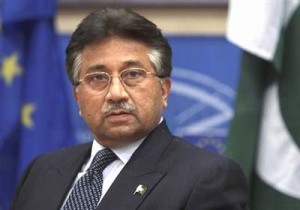Some Indian government functionaries, commentriat and analysts had wishful thinking that relations between Iran and Pakistan would be strained after Pakistan joined 34-nation Saudi-led alliance against terrorists especially IS militants. They had earlier predicted that after Pakistan refused to send troops to participate in operation against Houthis in Yemen, relations between Pakistan and Saudi Arabia would be at the lowest ebb. But they have been disappointed because both Saudi Arabia and Iran have defied those predictions. Iran’s President Hassan Rouhani was on a two-day visit in Pakistan, and he appreciated Pakistan’s role in reducing tension between two Muslim countries. He said that safety and security of Pakistan is Iran’s safety and security. Pakistan and Iran on Friday signed six memoranda of understanding (MoUs) to strengthen cooperation in health, commerce, finance and foreign services, which will boost trade and energy ties.
The two countries signed an MoU on Five Year Strategic Trade Cooperation Plan, and inked another MoU for cooperation on health research, training, medicine and medical technology. They signed another MoU in order to extend cooperation between the Federation of Pakistan Chambers of Commerce and Industry and the Chamber of Commerce, Industries, Mines and Agriculture of Iran. Pakistan and Iran also signed an MoU on cooperation between the Institute for Political and International Studies of Iran and Karachi Council on Foreign Relations (KCFR) of Pakistan. Last week, Prime Minister Nawaz Sharif and Army Chief General Raheel Sharif had visited to watch the military exercises. It appears that Iran and Saudi Arabia have realized and reconciled with the ground realities that Pakistan would like to have cordial rather best of relations with Iran and Saudi Arabia at the same time.
As regards the 34-nation alliance, it is more than clear now that it is a coalition of like-minded countries against extremists and terrorist, especially Islamic State. Pakistan and Saudi Arabia have always reiterated that threat to sovereignty of one will be deemed as threat to the other. Pakistan considers their security and integrity as cornerstone of its foreign policy. At the same time, Pakistan and Iran enjoyed excellent relations spanned over four decades, and Iran was an ally in Cento along with Turkey, and had stood by Pakistan during its war with India in 1965 and 1971. However, after revolution in Iran relations had come under strain because Pakistan was intertwined in defence pacts with the US and the West, as new Iranian leadership was skeptic of Pakistan’s relations with the West. Second bone of contention was that Pakistan and Saudi Arabia had recognized the Taliban government.
During the Cold War era when the world stood divided between socialist and capitalist camps, foreign policy of any country was reflective of its internal policies. Theoretically, those countries having pro-people welfare-oriented policies were supposed to be in the socialist camp, and those subscribing to unbridled capitalism in the western camp. There were also non-aligned countries, supposed to be following independent foreign policy, but like India and Pakistan were close to the Soviet camp and intertwined in defence pacts with the West respectively. Nevertheless, except a couple of exceptions, Pakistan had by and large friendly relations with Iran and Arab countries at the same time. It appears that Saudi Arabia and Iran have realized Pakistan’s compulsions and understood Pakistan’s position.
Pakistan and Saudi Arabia had also strong brotherly relations from the day one. However, it was three years after the 1965 war when Prince Sultan bin Abdul Aziz, the then Saudi Minister of Defence and Aviation, visited Pakistan and a bilateral defence cooperation protocol was formalised. During the 1970s, Saudi leadership responded to Zulfiqar Ali Bhutto’s request for financial assistance in order to respond to India’s nuclear ambitions after the first Pokhran test. Over a decade later, in 1982, Pakistan and Saudi Arabia signed another military protocol, which entitles the kingdom to seek Pakistani troops. After the western sanction following 1998 nuclear tests, Saudi Arabia provided 50,000 barrels of oil per day to Pakistan for a year. Pakistan has always expressed its gratitude to the brotherly countries for having stood by Pakistan in testing times.





